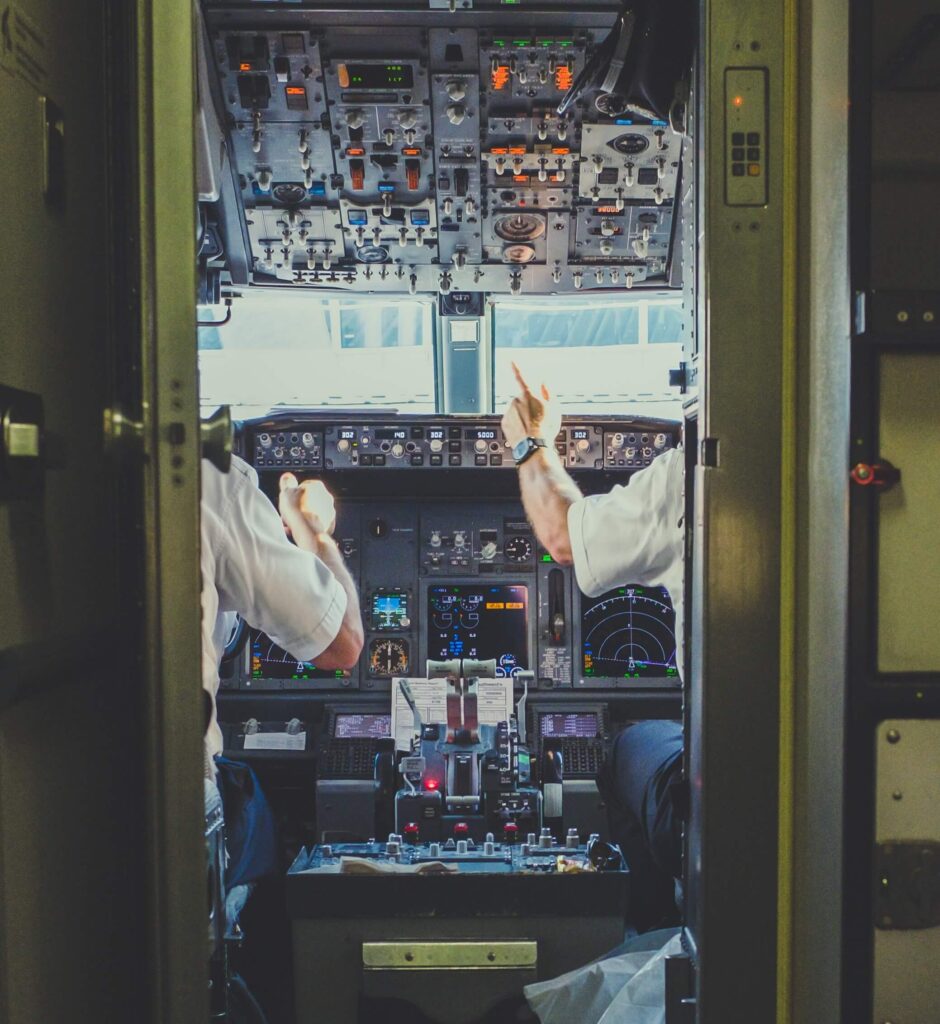Airline pilots have incredibly stressful jobs. Not only are pilots responsible for the safe transport of the plane’s passengers, but they also must deal with challenging schedules, including staggered sleep schedules, confined workspaces, and constant vigilance when in the cockpit. When pilots turn to alcohol or medications to help them deal with the stress, they may slide into addiction. When airline pilots experience addiction, that has the potential to significantly impact their health as well as others’ safety.
Alcohol’s Effects
The Federal Aviation Administration (FAA) cites studies of how alcohol affects pilot performance when they warn that pilots have shown impairment in their ability to fly an instrument landing system (ILS) approach or to fly instrument flight rules (IFR), and even to perform routine visual flight rules (VFR) flight tasks, while under the influence of alcohol, regardless of individual flying experience.
The number of serious errors committed by pilots dramatically increases at or above concentrations of 0.04% blood alcohol. Some studies have shown decreases in pilot performance with blood alcohol concentrations as low as 0.025%.
Hangovers Can Be Just as Dangerous
The FAA also emphasizes that a hangover effect, produced by alcoholic beverages after the acute intoxication has worn off, may be just as dangerous as the intoxication itself. Symptoms commonly associated with a hangover are headache, dizziness, dry mouth, stuffy nose, fatigue, upset stomach, irritability, impaired judgment, and increased sensitivity to bright light. A pilot with these symptoms would certainly not be fit to safely operate an aircraft. In addition, such a pilot could readily be perceived as still being under the influence of alcohol.
Bottle to Throttle
FAA regulations require that pilots, at a minimum, adhere to all the guidelines of 14 CFR Part 91.17:
- 8 hours from “bottle to throttle”
- Do not fly while under the influence of alcohol
- Do not fly while using any drug that may adversely affect safety.
A more conservative approach is to wait 24 hours from the last use of alcohol before flying. This is especially true if intoxication occurred or if you plan to fly IFR. The FAA warns that cold showers, drinking black coffee, or breathing 100% oxygen cannot speed up the elimination of alcohol from the body.
Pilots and Drug Addiction
Statistics provided by the FAA indicate a notable increase in the number of pilots testing positive for banned drugs in the three years since 2017 than in the time between 2009 and 2016. In 2018, the FAA issued about 1,200 special medical certificates for recovering pilots—roughly 0.2 percent of all active U.S. pilots. However, many medical professionals believe that the actual number of pilots who struggle with substance abuse, mostly alcohol, is likely to be higher—probably the same as in the general US population.
A study conducted by the National Transportation Safety Board (NTSB) in which it investigated toxicology reports from almost 1,000 aviation accidents in the US between 2013 and 2017, found that 59% of fatally injured pilots tested positive for at least one potentially impairing drug – either over the counter (OTC) or prescription – or tested positive for an illicit drug. As a result of this study, the NTSB discovered that diphenhydramine — a sedating antihistamine and active ingredient in many OTC allergy, cold and sleep aid treatments — was “the single most commonly identified potentially impairing drug” taken by fatally injured pilots.
Other studies have found that approximately 15% to 20% of all aviation incidents and accidents around the world involve a pilot who tests positive for some type of substance. Of those who test positive, the pilots face disciplinary action by the FAA and could even face criminal charges.
Stress and Addiction
The stress of a pilot’s job is a major contributor to a pilot’s potential addiction to drugs or alcohol. Trying to stay awake during long flights or trying to sleep in between flights, a pilot may turn to stimulants or sedatives. These drugs, including amphetamines, can cause a dependency that turns into an addiction. That addiction puts the pilots, their passengers, and their crew at serious risk.
A pilot’s inherent personality may also contribute to addictive tendencies. That very personality, one able to block out feelings of fear and second-guessing, is critical when it comes to safely guiding an airplane full of passengers. Dr. David Prewett, an aeromedical neuropsychologist in Atlanta, notes that pilots tend to be competitive and excel “at binding and controlling anxiety.” However, these personality traits could also result in a pilot’s underestimating the warning signs of addiction to drugs or alcohol.
Providence Offers Quality Addiction Treatment for Airline Pilots
The professionals at Providence Treatment have years of experience working with the Human Intervention Motivation Study (HIMS) program for airline pilots who are experiencing addiction. We offer a quality, clean and sober environment for you to get help with your addiction to drugs or alcohol. We are here to support you, so that you can be healthier and safer, and eventually able to return to the job you love. You can overcome addiction at Providence Treatment. If you need help, contact us at 484.469.9592.









